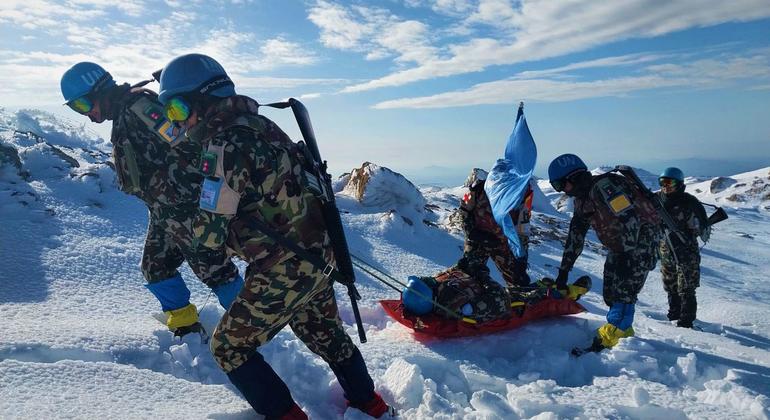More than 1,100 UN peacekeepers are deployed in the Golan Heights, a demilitarized zone along the border between Israel and Syria, in a historically tense context. The United Nations Disengagement Observer Force (UNDOF) is one of the organization’s oldest peacekeeping missions, established over half a century ago in response to the 1973 Middle East crisis.
The deployment of UNDOF was formalized after the signing of the Withdrawal Agreement between Israeli and Syrian forces, which established a separation zone and limitations on armaments and troops on both sides. Since its creation in May 1974, the mission has maintained an almost unchanged mandate, including overseeing the ceasefire, verifying troop withdrawals, and controlling the separation zone.
UNDOF operates from two base camps and conducts both daytime and nighttime patrols, intervening in any attempt at military operations in the separation zone. Additionally, the mission is responsible for clearing mines and explosive remnants, implementing security programs to identify these hazards in the territory. The separation zone extends around 80 kilometers and its regulation prohibits the presence of military forces not affiliated with UNDOF.
Over time, there have been numerous ceasefire violations reported, leading UNDOF to collaborate with both parties to resolve conflicts. However, the situation has recently deteriorated, especially due to increased tensions from the war in Gaza, resulting in tragic incidents such as a missile impact that killed 12 people in the Golan Heights. In response to this escalation, the Israeli army has increased its presence in the area, causing concern among local residents and complicating UNDOF’s operational capacity.
Facing these challenges, the mission has adapted its approach by increasing its weekly patrols from 10 to 40. Efforts are also being made to establish communication channels with the new de facto authorities in Syria. Major General Patrick Gauchat, interim head of UNDOF, has emphasized the importance of allowing peacekeeping forces to carry out their tasks unhindered, urging all involved parties to respect the ceasefire and the terms of the 1974 agreement.
Operating under Chapter VI of the United Nations Charter, UNDOF is authorized to use force in self-defense or to protect its personnel and facilities. As the situation in the Golan Heights remains volatile, the UN mission stands as an essential bastion for peace in one of the world’s most conflict-ridden regions.
Referrer: MiMub in Spanish











